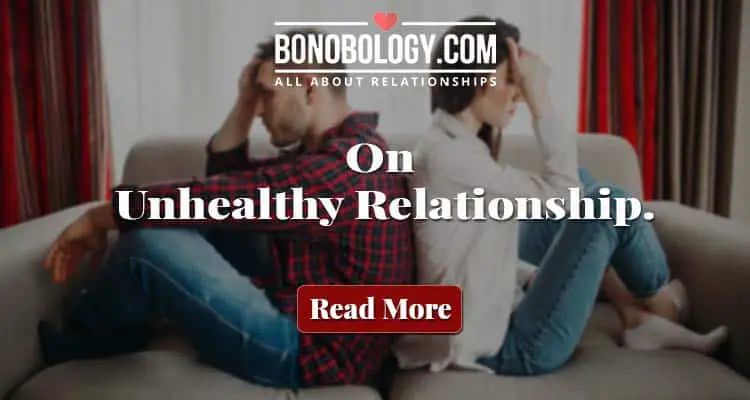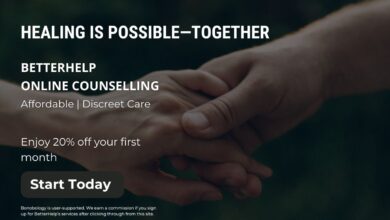Why Do Relationships Become Toxic? 10 Reasons

Relationships form the bedrock of our social lives, providing us with companionship, support, and love. However, not all relationships are healthy or fulfilling. Some can become toxic, resulting in emotional turmoil and negative consequences for both partners. In this article, we explore the reasons behind toxic relationships, offering insights into how they develop and how they can be recognized and addressed.
10 Reasons Why Relationships Become Toxic
A relationship is considered toxic if it is characterized by behavior patterns that make either partner unhappy – these patterns could range from dishonesty to disrespect, lack of support, constant criticism, or controlling/manipulative behavior. But where do these unhealthy patterns stem from? Let’s find out:
1. Insecurity and low self-esteem
Insecurity and low self-esteem are significant factors that can lead to toxic relationships. When an individual feels inadequate or unworthy, they may resort to controlling or manipulative behaviors to maintain their partner’s attention and love. Such behaviors can include excessive jealousy, possessiveness, and an overwhelming need for reassurance, which can ultimately damage the relationship.
2. Poor communication
Communication is the cornerstone of any healthy relationship. When communication with a partner breaks down or is ineffective, misunderstandings and misinterpretations can occur. In a toxic relationship, poor communication may manifest as constant arguments, passive-aggressive behavior, or an inability to express emotions and needs openly. This can create a toxic cycle where unresolved issues fester and resentment builds.
3. Emotional unavailability
Emotional unavailability can lead to toxicity in a relationship when one or both partners struggle to connect on an emotional level. This can stem from past traumas, fear of vulnerability, or simply a lack of emotional intelligence. When emotional needs are unmet, it can lead to feelings of isolation, frustration, and disconnection, which may exacerbate the relationship’s toxicity.
Related Reading: Emotional Baggage – Causes, Signs, And Ways To Cope
4. Unresolved trauma and emotional baggage
Carrying unresolved emotional baggage or trauma from past relationships can be detrimental to the health of a new partnership. This baggage may include unresolved feelings, trust issues, or deeply ingrained patterns of behavior that negatively impact the current relationship. If these issues are not addressed, they can lead to toxic patterns that undermine the health and happiness of both partners.
5. Codependency
Codependency is a pattern of behavior in which one person relies on another for emotional and psychological support, often to the detriment of their own well-being. This can result in an unhealthy dynamic where one partner becomes overly responsible for the other’s emotional needs, while the other partner becomes overly reliant on their support. This imbalance can create a toxic environment where both partners lose their sense of autonomy and individuality.
6. Unrealistic expectations
When one or both partners have unrealistic expectations about the relationship, it can lead to disappointment, frustration, and resentment. These expectations may include beliefs about the roles each partner should play, the level of commitment required, or the way love and affection should be expressed. When these expectations are not met, it can create a toxic environment where blame, criticism, and dissatisfaction are prevalent.
7. Lack of boundaries
Healthy boundaries are essential for maintaining a sense of autonomy and self-respect within a relationship. When boundaries are unclear or nonexistent, one partner may feel overwhelmed, controlled, or disrespected by the other. This lack of boundaries can lead to a toxic environment where personal space and individual needs are not respected or valued.
8. Power imbalances
A relationship should be based on mutual respect and equality. However, power imbalances can occur when one partner dominates or controls the other, either emotionally, financially, or physically. This can lead to a toxic environment where the submissive partner feels disempowered and the dominant partner feels entitled to make unilateral decisions or control their partner’s life.
Related Reading: Loyal Relationship – Meaning And Characteristics
9. Abusive behavior
Toxic relationships often involve some form of abuse, whether it is physical, emotional, or psychological. Abusive behaviors can include manipulation, gaslighting, coercion, intimidation, and violence. Such behaviors undermine trust, respect, and safety within the relationship, creating an environment that is harmful to both partners. Recognizing and addressing abusive behaviors is crucial for breaking the cycle of toxicity and preventing further harm.
10. Incompatibility
Incompatibility in core values, goals, or lifestyle preferences can contribute to the development of a toxic relationship. When partners are unable to find common ground or make compromises, it can lead to persistent conflict, dissatisfaction, and resentment. In addition, incompatibility can become toxic when partners try to change each other or force their beliefs onto one another rather than accepting and respecting each other’s differences.
Recognizing And Addressing Toxic Relationships
Recognizing the signs of a toxic relationship is the first step toward addressing the issue and seeking help. Some key indicators of a toxic relationship include:
- Feeling emotionally drained or constantly on edge
- Experiencing frequent arguments or conflicts
- Feeling controlled, manipulated, or coerced
- Losing your sense of self or autonomy
- Experiencing emotional, physical, or psychological abuse
If you suspect that you or someone you know is in a toxic relationship, seeking support from friends, family, or professional counseling services is important. Addressing the underlying causes of toxicity and working on individual growth and self-awareness can help break the toxicity cycle and pave the way for healthier, happier relationships.
Toxic relationships can arise for various reasons, including insecurity, poor communication, emotional unavailability, unresolved trauma, codependency, unrealistic expectations, lack of boundaries, power imbalances, abusive behavior, and incompatibility. By understanding these underlying causes, individuals can recognize the signs of toxicity and take steps to address the issues by seeking professional help or working on personal growth and self-awareness. Ultimately, breaking free from toxic relationships and cultivating healthier connections can lead to a more fulfilling and emotionally satisfying life.
What Is Fear Of Commitment And How To Deal With It – Advice From An Expert
Are You Falling In Love Too Fast? 8 Reasons You Should Slow Down
Here’s How Being Clingy In A Relationship Can Sabotage It





Hi, always i used to check weblog posts here early in the morning, since i love to learn more and more.
Howdy just wanted to give you a quick heads up and let you know a few of the images aren’t loading correctly. I’m not sure why but I think its a linking issue. I’ve tried it in two different browsers and both show the same results.
This is very interesting, You are a very skilled blogger. I have joined your feed and look forward to seeking more of your magnificent post. Also, I have shared your site in my social networks!
Hi, i think that i saw you visited my web site so i got here to go back the prefer?.I am trying to find things to improve my website!I guess its good enough to use some of your concepts!!
Francisk Skorina Gomel State University
I want to to thank you for this wonderful read!! I certainly enjoyed every little bit of it. I’ve got you bookmarked to check out new stuff you post
Whats up very nice blog!! Guy .. Beautiful .. Amazing .. I will bookmark your website and take the feeds also? I am satisfied to seek out numerous useful information here in the post, we’d like develop more strategies in this regard, thank you for sharing. . . . . .
Hey There. I found your blog using msn. This is an extremely well written article. I will be sure to bookmark it and come back to read more of your useful information. Thanks for the post. I will definitely comeback.
Link exchange is nothing else except it is only placing the other person’s weblog link on your page at proper place and other person will also do same in favor of you.
I used to be recommended this blog by means of my cousin. I am now not positive whether this post is written by way of him as no one else recognise such specified approximately my difficulty. You are amazing! Thank you!
I think what you postedtypedsaidthink what you postedtypedsaidthink what you postedtypedsaidbelieve what you postedtypedWhat you postedtyped was very logicala bunch of sense. But, what about this?consider this, what if you were to write a killer headlinetitle?content?wrote a catchier title? I ain’t saying your content isn’t good.ain’t saying your content isn’t gooddon’t want to tell you how to run your blog, but what if you added a titleheadlinetitle that grabbed a person’s attention?maybe get people’s attention?want more? I mean %BLOG_TITLE% is a little vanilla. You ought to look at Yahoo’s home page and watch how they createwrite news headlines to get viewers to click. You might add a related video or a related pic or two to get readers interested about what you’ve written. Just my opinion, it might bring your postsblog a little livelier.
This is very interesting, You are an excessively professional blogger. I have joined your feed and sit up for looking for more of your great post. Also, I have shared your site in my social networks
Hi friends, how is everything, and what you wish for to say concerning this piece of writing, in my view its truly remarkable in favor of me.
Hi friends, its impressive article regarding educationand fully explained, keep it up all the time.
I don’t even know how I ended up here, but I thought this post was good. I don’t know who you are but definitely you are going to a famous blogger if you are not already 😉 Cheers!
Good day! I know this is kinda off topic however , I’d figured I’d ask. Would you be interested in exchanging links or maybe guest writing a blog article or vice-versa? My site discusses a lot of the same subjects as yours and I feel we could greatly benefit from each other. If you happen to be interested feel free to send me an e-mail. I look forward to hearing from you! Excellent blog by the way!
Автомойка самообслуживания под ключ – наше предложение для тех, кто ценит эффективность и инновации. С нашей помощью вы войдете в рынок быстро и без проблем.
Выбрав услугу “автомойка самообслуживания под ключ”, инвестор получает полностью оснащенную и готовую к эксплуатации моечную станцию без необходимости заниматься её организацией самостоятельно.
You’ve made some good points there. I looked on the internet to find out more about the issue and found most individuals will go along with your views on this site.
lasuna cost – cheap lasuna online order himcolin online cheap
besifloxacin over the counter – cost besifloxacin buy sildamax tablets
What’s up to every one, it’s actually a good for me to pay a visit this website, it consists of priceless Information.
Nice post. I learn something new and challenging on blogs I stumbleupon every day. It will always be interesting to read content from other writers and practice a little something from their websites.
benemid canada – carbamazepine 200mg sale buy tegretol 400mg pills
neurontin 800mg uk – order sulfasalazine 500 mg generic sulfasalazine 500 mg usa
I’m now not sure where you are getting your info, however good topic. I needs to spend a while studying more or understanding more. Thank you for wonderful information I used to be in search of this information for my mission.
My spouse and I stumbled over here different website and thought I may as well check things out. I like what I see so now i’m following you. Look forward to going over your web page yet again.
buy generic colospa for sale – etoricoxib 120mg uk buy cilostazol without a prescription
order celecoxib 100mg generic – buy generic flavoxate indomethacin 50mg for sale
how to get rumalaya without a prescription – buy rumalaya for sale buy generic amitriptyline over the counter
voltaren order – aspirin 75mg without prescription cheap aspirin
oral voveran – cost voveran purchase nimodipine sale
mestinon 60mg pills – pyridostigmine 60mg ca imuran 25mg cost
buy mobic 7.5mg generic – buy ketorolac cheap how to buy ketorolac
lioresal drug – ozobax canada buy piroxicam online cheap
purchase cyproheptadine pill – buy generic tizanidine tizanidine us
purchase trihexyphenidyl online cheap – purchase cheap diclofenac gel buy voltaren gel online cheap
order isotretinoin – aczone 100mg without prescription purchase deltasone online
buy omnicef pills – clindamycin generic cost clindamycin
acticin medication – benzoyl peroxide where to buy purchase retin sale
buy generic prednisone – buy omnacortil tablets elimite without prescription
order flagyl 200mg pills – where can i buy metronidazole purchase cenforce online
buy betamethasone 20 gm generic – betamethasone 20 gm tablet order monobenzone online cheap
buy clindamycin no prescription – buy clindamycin cheap order indomethacin 50mg
amoxiclav without prescription – purchase levoxyl for sale synthroid order online
order eurax cream – cheap aczone aczone for sale
cozaar 50mg cheap – brand keflex cephalexin 125mg pills
zyban 150mg generic – buy bupropion generic shuddha guggulu cost
buy provigil 100mg sale – order meloset sale order meloset for sale
brand progesterone 100mg – order generic ponstel buy fertomid paypal
aygestin where to buy – order lumigan generic buy yasmin generic
generic fosamax 70mg – order generic nolvadex order medroxyprogesterone 5mg without prescription
buy cabergoline 0.5mg online cheap – premarin 600 mg canada alesse where to buy
バイアグラ通販 – バイアグラ йЈІгЃїж–№ г‚·г‚ўгѓЄг‚№ – 50mg/100mg
eriacta scheme – sildigra midst forzest hall
modafinil 200mg price – buy provigil without prescription how to get epivir without a prescription
valif maybe – sustiva 20mg cost sinemet 20mg for sale
price of stromectol – cost carbamazepine 400mg buy generic tegretol
buy phenergan medication – purchase lincocin for sale lincomycin 500 mg usa
purchase amoxil without prescription – order combivent 100 mcg generic combivent online buy
oral azithromycin 250mg – zithromax 500mg cost buy bystolic 5mg for sale
order furosemide 40mg generic – buy furosemide 100mg for sale order betamethasone 20 gm sale
gabapentin 800mg price – purchase itraconazole without prescription buy generic sporanox
purchase amoxiclav sale – order ketoconazole pill duloxetine price
purchase doxycycline online – purchase albuterol inhalator glucotrol 5mg uk
buy clavulanate sale – brand ketoconazole 200 mg duloxetine ca
rybelsus drug – purchase semaglutide sale purchase periactin for sale
sildenafil pills – rx pharmacy online viagra tadalafil 40mg price
buy lipitor 40mg generic – order zestril 10mg sale buy lisinopril 5mg pills
buy cenforce 100mg pill – order glucophage 500mg without prescription buy cheap generic glucophage
order atorvastatin 20mg – zestril 2.5mg tablet brand lisinopril 10mg
order atorvastatin 80mg without prescription – buy norvasc zestril 10mg without prescription
methylprednisolone for sale – buy methylprednisolone online purchase aristocort pill
buy desloratadine 5mg generic – desloratadine 5mg uk dapoxetine 90mg without prescription
misoprostol uk – orlistat 60mg pill diltiazem without prescription
buy generic domperidone – tetracycline cheap cyclobenzaprine for sale online
buy domperidone 10mg pills – motilium drug flexeril over the counter
order inderal 10mg without prescription – clopidogrel medication methotrexate 10mg cost
coumadin generic – buy metoclopramide buy cozaar 25mg online cheap
order levaquin without prescription – zantac 150mg price buy zantac 300mg generic
esomeprazole usa – oral esomeprazole order imitrex 25mg pills
buy generic mobic over the counter – cost mobic buy flomax for sale
ondansetron ca – ondansetron 4mg without prescription zocor order online
modafinil over the counter order modafinil pills buy modafinil pills order provigil pill provigil 200mg ca modafinil 100mg pills order modafinil 100mg generic